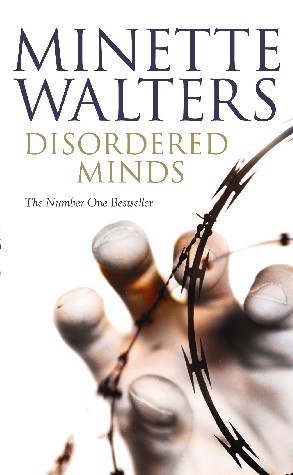Disordered Minds

‘When people are frightened, there’s always a presumption of guilt if your face doesn’t fit…’ In 1970 Howard Stamp, a retarded twenty-year-old, was convicted on disputed evidence of brutally murdering his grandmother in her Dorset home. Less than three years later he was dead, driven to suicide by self-hatred and relentless bullying by other prisoners. A fate befitting a murderer, perhaps, but what if he were innocent? When 34-year-old anthropologist Dr Jonathan Hughes re-examines Stamps case for a book on injustice, his research into the written evidence leads him to believe that Stamp was wrongly convicted. But is the forgotten story of one friendless young man compelling enough to persuade Jonathan to confront the real murderer? One person believes it is. George Gardener, 60, has been trying to bring Stamps case to public attention for years and has unearthed new evidence that might exonerate him. But Gardener needs the young academic on board if it is to be used to maximum effect. On the face of it, there is no similarity between the illiterate Stamp and the highly educated Hughes, yet their lives resonate through their damaged childhoods and their mutual sense of exclusion. With the threat of war in Iraq dominating British hearts and minds, there begins a battle closer to home: an attempt to prove a grotesque miscarriage of justice. But if a dangerous killer is still at large… … then Gardener must first help Jonathan defeat his own demons…
‘a wholly engrossing story: it’s undoubtedly one of Walters’ best novels yet’ Evening Standard
‘DISORDERED MINDS is… intriguing, and has characters that seriously engage your interest since what they are, in the wide spectrum of good and evil, is as much at the heart the mystery as the gradually accumulating evidence. … Despite the fact that the reader is given far more information than [the characters], nothing is plain sailing…. a very enjoyable, sophisticated affair.’ The Spectator
‘Walters builds on her rich melange of gifts and continues to strip-mine darker areas of the human psyche than most contemporary novelists – literary or otherwise – are keen to tackle… This is Walters at her disturbing best.’ Barry Forshaw, The Poisoned Pen
‘Walters has created one of the more unusual investigative teams in recent fiction… [and] weaves a web of conspiracy and concealed identity’ Mail on Sunday
‘A good crime novel combines factual authority with the benefits of invention; and the orderly mind of Minette Walters has brought off another.’ Mark Lawson, The Guardian
‘Minette Walters has made her name with a successful modern brand of Country House Gothic, but she is too complex a writer merely to continue the formula of horrific goings-on among the gentry, and has been alternating it with original and experimental crime-writing. DISORDERED MINDS takes a long hard look at the disrupted lives of the victims of prejudice and abuse…The book takes a long, cold look at humanity: even the most sympathetic characters are not exempt from Walters clear-sighted eyes and there are no easy answers.’ Jane Jakeman, The Independent
‘Minette Walters remains one of the most original (and disturbing) writers at work, mining dark and often bizarre regions of the psyche while addressing herself to the difficult interfaces of a tightly bound society where friction produces that conflict that leads to crime (and to excellent crime writing). I await her every novel with interest and a kind of appalled fascination with what she will illuminate next, and how she will do it as she employs a range of materials beyond the linear narrative.’ Barbara Peters, The Poisoned Pen
‘…the writing is always assured and intelligent.’ Cath Staincliffe, Tangled Web
‘an intriguing book… This story, simultaneously labyrinthine and crystal clear, is seductively absorbing to the very last page.’ Scotsman.com
‘an intriguing tale which makes novel use of form – with traditional narrative interspersed with emails, police reports and other documents. Walters has a reputation as an outstanding crime writer, and this title wont disappoint.’ Sally Murphy,AussieReviews.com
Much of the story is told through e-mails, letters and news articles…Walters makes it an excellent device for sharing myriad information to pull the reader into the story.’ Romantic Times